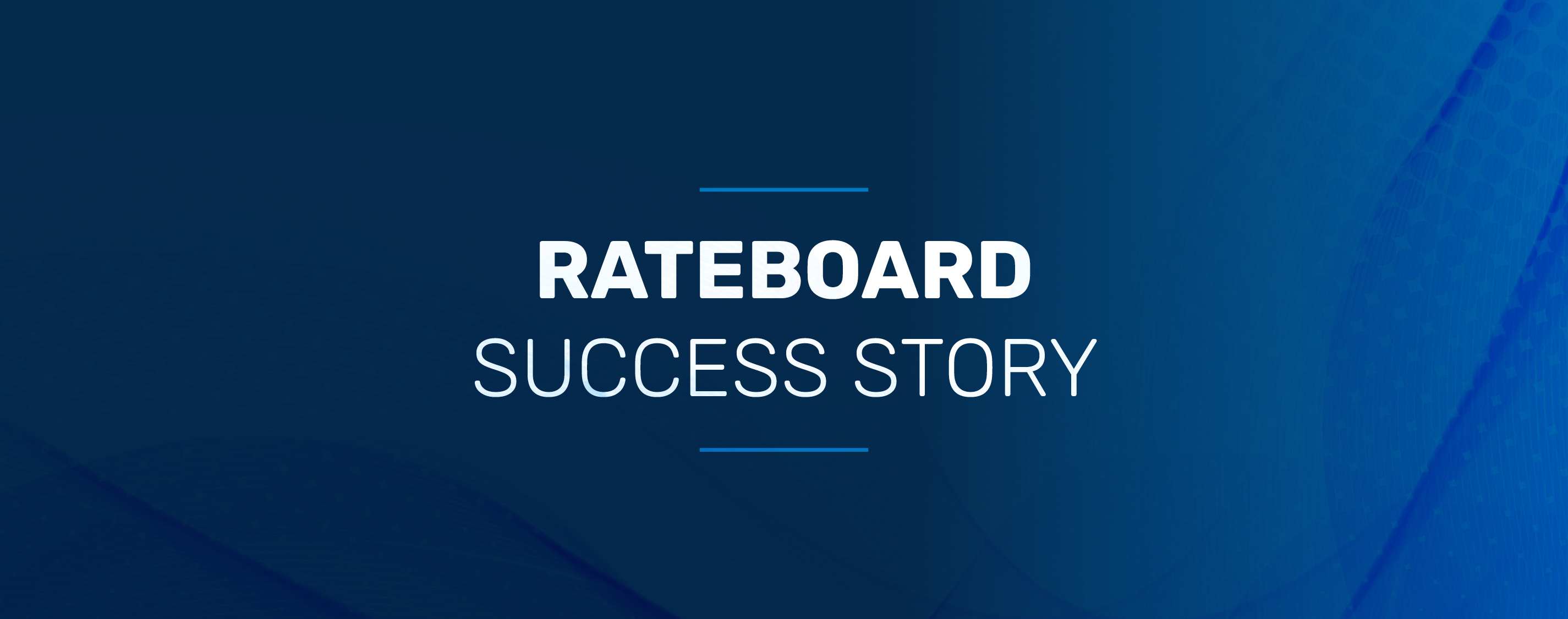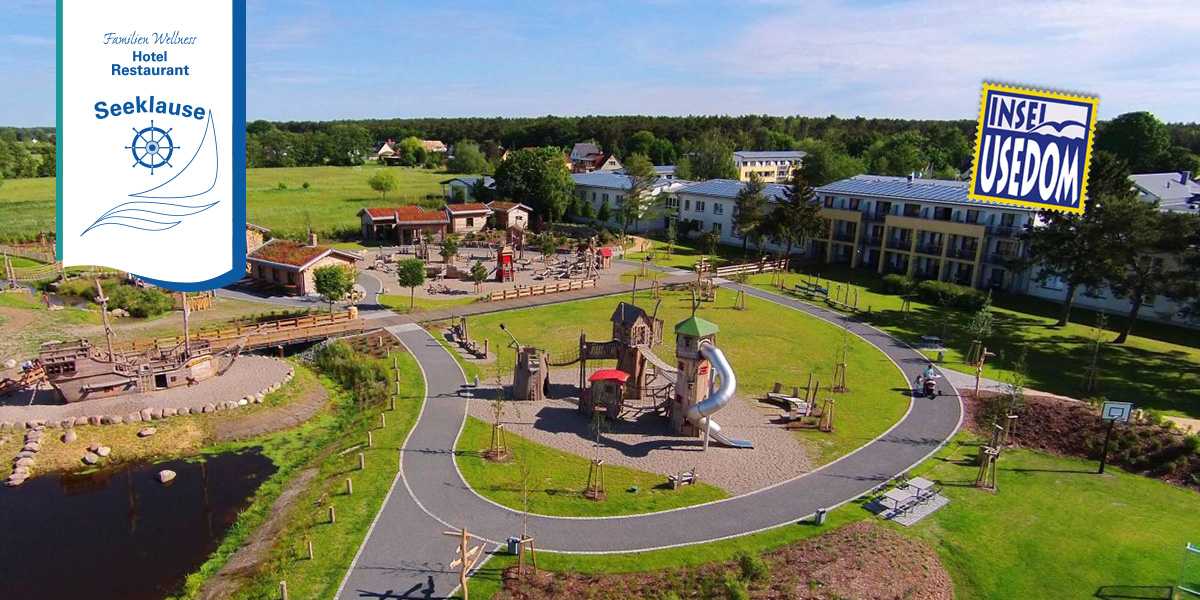
Daniela
Marketing Manager
March 26, 2019
Success stories
Interview: This is what Revenue Management looks like on Usedom
In our interview with Mr. Römer, Managing Director of the Hotel Seeklause on Usedom, we learned how the hotel industry on the Baltic Sea is behaving with Revenue Management. He talks about current challenges and the implementation of his optimal pricing strategy.

Hotel Seeklause is a family friendly 4-Star-Hotel located at the north coast of the beautiful island Usedom in Germany. Managing the hotel with 142 rooms is the big passion of Mr. Römer. Recently he works with the Revenue Management Software RateBoard.
1. Dear Mr. Römer, could you briefly tell us some facts about Hotel Seeklause. What does the hotel stand for and who is your target group?
Our target customers are families with children. Whether it be a single with his child, a patchwork family or grandma and grandpa with their grandchildren. Already in 2005, we have been rewarded as a family-friendly hotel, for multiple times. And I think we have one of the most beautiful playgrounds here on the island Usedom.
2. In your opinion, with which challenges is the hotel industry on the Baltic Sea currently faced?
The challenges on the Baltic coast are surely not different from the ones all over the world. The transparency of the Internet has increased the pressure of competition enormously. Also, just offering a decent bed and a good breakfast are no longer enthusiasm factors, but are taken for granted.
We need to arouse the guest's curiosity, again and again, to motivate them always coming back and spending their holiday with us. We think, instead of concentrating on boring standards, you need to set yourself apart from your competitors with your heartiness, hospitality and individual offers for your guests.
3. How important is Revenue Management in Usedom or in the entire Baltic Sea area?
We are located on the most eastern part of Germany and Revenue Management has certainly reached us a little later, as everything does on Usedom (laughs). Meanwhile, it can be said that Revenue Management has reached Usedom. I think about 60% of all hotels and accommodations are using dynamic prices.
4. When and why did you decide to work with dynamic prices in Hotel Seeklause?
I would say we work with dynamic pricing "in perfection" for the last three years. We checked the price several times a day, so it changed 5-6 times a day, or even hourly, in the main season. Without any automation, it has always been a very time-consuming task. The incentive for this effort was to have a fully booked hotel and to find the right price for the right guest at the right time.
5. How did you communicate the implementation of Revenue Management hotel internally?
Exactly this was one of our biggest challenges. We are a big hotel with about 3-4 employees at the reception desk and in the backoffice each shift. So we needed to train about 20 employees about the change from fixed rates to demand orientated prices. Also nowadays it's an exciting task explaining to new employees that there a no printed sheets with seasonal prices. A fundamental rethinking is necessary.
6. What has been your considerations about investing in a Revenue Management Software?
Investment is always a big challenge. Nobody likes to spend money on something where he doesn't know what he is getting. Especially with this kind of software, it’s difficult to assess how it will work in your own hotel. For me, I decided very fast to make the investment and buy the software. With Revenue Management I want to achieve better results in the long-term.
7. With which features stood RateBoard out from their competitors?
I had previously used "booking suite", the yield management tool from booking.com, which has been stopped in summer 2018. I got a recommendation and contacted RateBoard. The first big difference between the two providers is the used database. "booking suite" only uses competitors' market data to generate price proposals. RateBoard, on the other hand, processes a lot of historical data from my own inventory system, which is much more valuable in pricing than just targeting competitors.
8. What is your pricing strategy currently? Has this changed since using RateBoard?
With our previous price strategy, we put a price into the market, observed how it performed and in the end, we dropped it step by step. With RateBoard we now have the opportunity for the first time to calculate prices for over a year in advance and to derive a strategy based on this basis. From now on we try to create a long-term price strategy on the base of our historical trends of the last three years. Due to this, we can always offer an actual price according to current demand.
9. How do you deal with your regulars' bookings in connection with Revenue Management?
At the moment we still have an arrangement plan which is not linked with the prices of Revenue Management. Guests can book the arrangements until a certain day prior arrival, this is similar to an early bird offer. A regular guest who always has booked an arrangement will never recognize Revenue Management. Regulars, however, who book a normal rate, are already used to the fact that prices change. Through our previous strategy of short-term price reduction, we have educated our guests to late bookers. Now we need to change this habit and animate our guests to book earlier if they want to have a better price.
10. Please tell us something about the support from our Revenue Management team
In RateBoard I have my direct contact person in Christoph. Chris is a very nice guy, Austrian mentality and easy going. He gives me the feeling to be called from a friend, but a friend who supports me very competently. Cause consultancy is very important for me, I decided to book two extra hours of support with Chris, to learn more about pricing and the software RateBoard.
11. If you would need to inform your colleagues about the implementation of Revenue Management with RateBoard. What would you tell them about the challenges and benefits?
In the beginning, it was really hard for me to trust in the data of RateBoard. But after I exhaustingly compared the data from my system with them from RateBoard, I recognized they were always similar.
One major advantage for me is to have a quick overview of the prior day and the answer about how my hotel is actually performing compared to last year. From this follows that I can plan the next actions by myself or I just follow the suggestions on the dashboard. Revenue Management is the best tool to decide changes in the context of a solid database and not just instinctively.
I'm glad that I have found a competent partner with RateBoard and with Christoph a nice person who is supporting me. In Hotel Seeklause we will definitely continue working with the Software. I already recommended RateBoard to some colleagues, so whether they implement or not, that's a point they need to decide by themselves.
Is your hotel read for Revenue Management? Contact us and we will find it out together.
SHARE

Subscribe To Our Newsletter
Sign up now and receive monthly hotel and revenue management insights.
